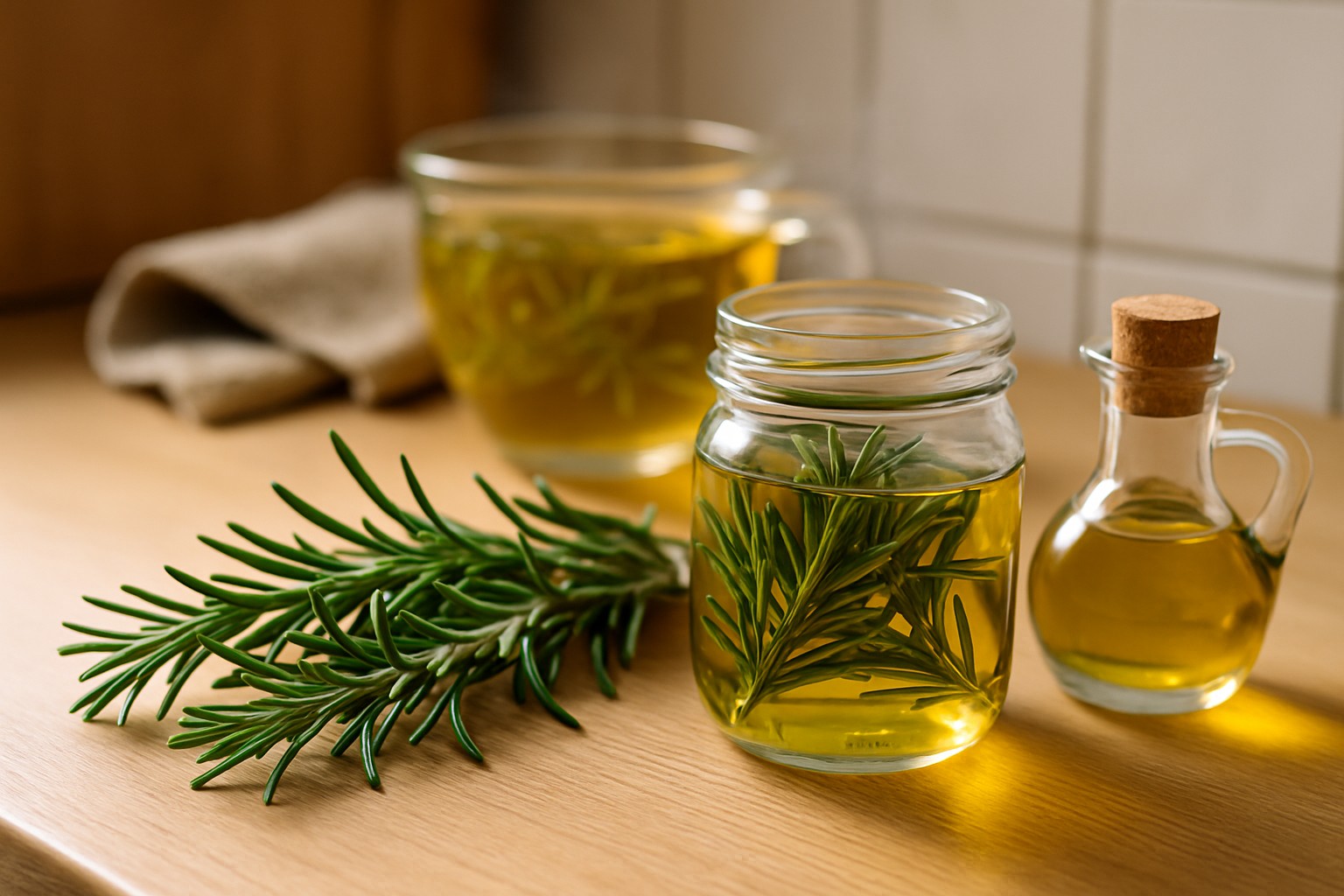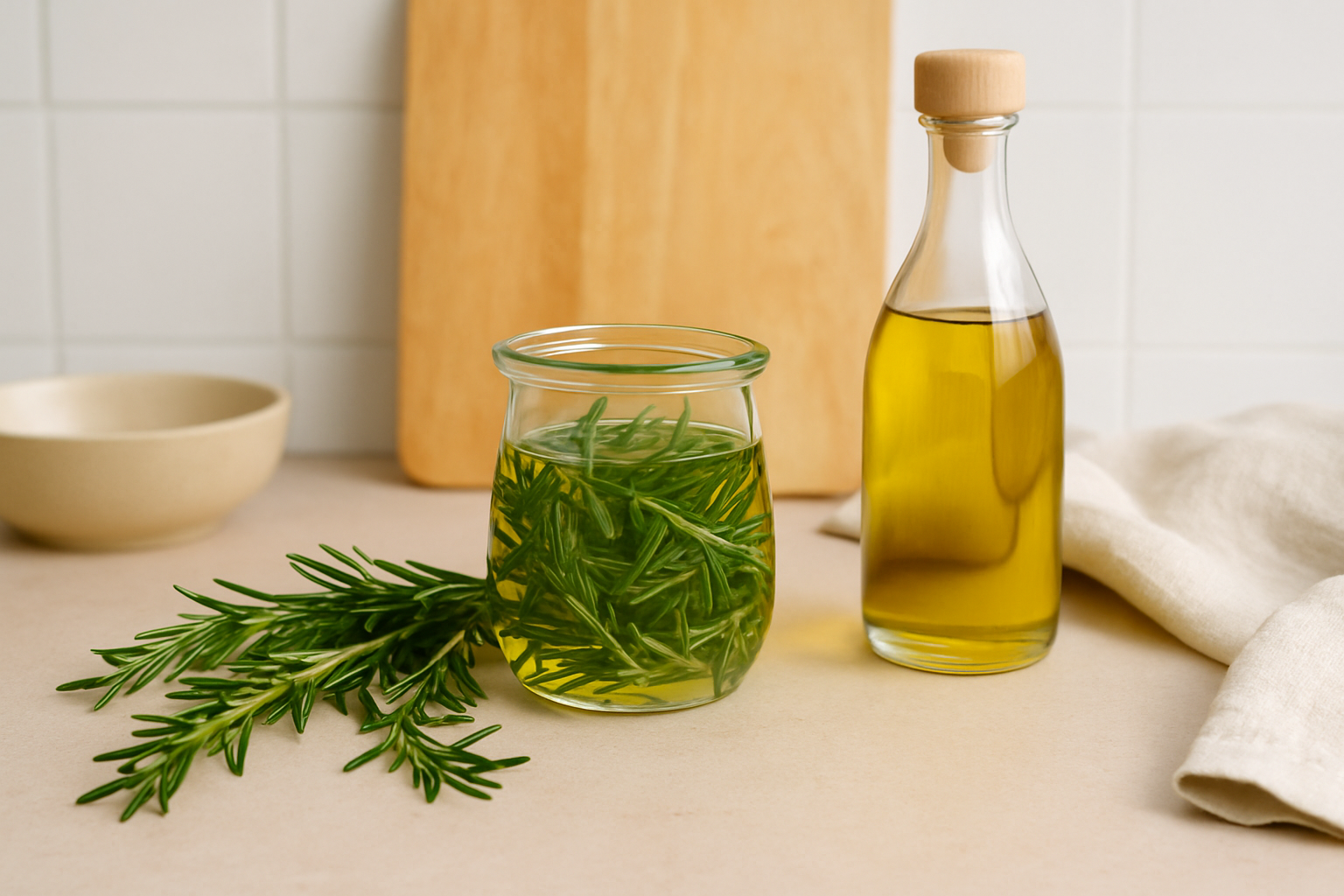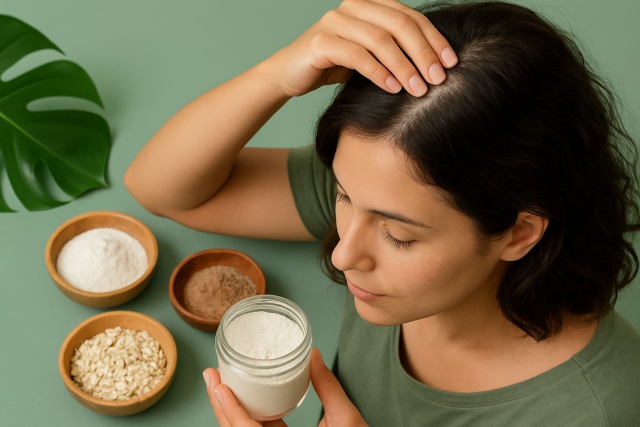Making Rosemary Oil for Hair Growth With Fresh Herbs

Making rosemary oil for hair growth has been cherished for centuries as a natural go-to for supporting hair health especially when it comes to giving hair growth a little nudge. Packed with antioxidants and key nutrients it works to nourish the scalp and fortify hair follicles. This often results in thicker and fuller locks. Whipping up rosemary oil at home using fresh herbs lets you tap into the plant’s full power and purity—no funny business or additives you might find in store-bought bottles.
Diving Into Rosemary Oil and Why It Might Just Be Your Hair's New Best Friend
Rosemary oil has long been a favorite in traditional remedies and modern hair care routines because it helps get the blood flowing to the scalp. It wakes up tired hair follicles and boosts healthy hair growth. Thanks to its natural ingredients like rosmarinic acid and antioxidants, it soothes scalp inflammation and protects against hair thinning.
- Boosts blood flow, giving your hair roots the TLC they deserve.
- Helps keep dandruff and dryness at bay, thanks to its trusty antimicrobial powers.
- Strengthens hair strands, which means fewer breakages and less hair lost along the way.
- Might just slow down premature graying by protecting those precious pigment cells from damage.
Why Go for Fresh Rosemary Herbs Instead of Their Dried Counterparts or Those Fancy Commercial Oils?
Although dried rosemary and store-bought oils are convenient to grab off the shelf, fresh rosemary really elevates the experience with a richer and more powerful infusion. Fresh herbs usually contain more essential oils and active compounds but these tend to fade or disappear once the herb is dried or processed. When you make your own rosemary oil from fresh sprigs, you control every step from harvesting to infusion so there is no chance of hidden additives or preservatives. This hands-on method boosts the oil's potency and allows you to customize the scent, texture and choice of carrier oil exactly the way you prefer.
Materials and Ingredients You’ll Need to Whip Up Some Rosemary Oil
- Fresh rosemary sprigs picked in the morning when they have the most potent oils.
- Carrier oils such as jojoba, sweet almond or coconut oil act as the perfect base to soak up those lovely flavors.
- A clean glass jar with a snug lid for infusing your oil without spills or air sneaking in.
- A fine strainer or cheesecloth to gently separate rosemary bits because nobody wants a mouthful of leaves.
- A funnel to pour the infused oil into smaller bottles neatly and tidily.
- Dark glass bottles for storing your precious oil, shielding it from light and keeping it fresh longer.
Picking the right carrier oil really matters since it not only dilutes rosemary’s potent essential compounds but also brings its own perks for your hair. Jojoba oil tends to mimic sebum closely and can help keep your scalp balanced without a greasy aftermath. Sweet almond oil is packed with vitamins and offers deep nourishment. Coconut oil has earned its reputation by penetrating the hair shaft and locking in moisture like a pro.
A No-Fuss Guide to Making Rosemary Oil for Hair Growth at Home
- Gather some fresh rosemary sprigs ideally from an organic source or your own garden if you have one. Give them a gentle rinse to wash away any lingering dirt then set them aside to air dry naturally.
- To keep pesky mold at bay during the infusion lay the rosemary out on a paper towel for a few hours so it can dry out just a bit. Patience is key here.
- Pick your carrier oil and measure about 1 cup for every handful of rosemary sprigs. Warm the oil gently to coax out those lovely flavors but don’t get carried away and overheat it because nobody likes a burnt batch.
- Pop the rosemary into a sterilized glass jar then pour the warmed oil right over the top making sure every sprig is nicely submerged. Seal the jar tight no sneaky air allowed.
- Let your concoction infuse away in a warm dark spot for anywhere between 3 to 6 weeks. Give the jar a gentle shake every few days to keep things well mixed and lively.
- When it’s ready strain the oil through a cheesecloth or a fine mesh strainer to get rid of all the plant bits. Transfer the resulting golden elixir into a dark glass bottle and store it somewhere cool and dry so it stays fresh and happy.

Fresh rosemary sprigs and a glass jar used for making rosemary oil at home
Make sure you handle your rosemary oil with clean hands and sanitized tools to keep unwanted guests like bacteria from crashing the party. Store the oil in dark glass bottles away from sunlight to keep its potency locked in. Keep it in a cool shady spot.
How to Really Make Homemade Rosemary Oil Work Wonders for Your Hair Growth
- Gently massage a few drops of rosemary oil into your scalp for about 5 to 10 minutes—think of it as a mini spa moment to get the blood flowing.
- Use the oil 2 to 3 times a week, giving your scalp plenty of time to soak up all those good-for-you nutrients.
- For extra oomph in your hair care game, try mixing a small splash of rosemary oil right into your shampoo or conditioner.
- If your skin tends to be on the sensitive side, dilute the oil with a carrier oil first to keep any irritation at bay.
Using rosemary oil regularly in your hair care routine really shines when you stick with it consistently. Give your scalp the best chance to soak it up by applying the oil to damp hair or right after shampooing—this little trick helps lock in moisture like a charm. You can also let it work its magic as a pre-wash treatment or even leave it on overnight as a scalp mask for that extra punch of nourishment.
Possible Side Effects and Safety Tips You Should Keep in Mind
When making rosemary oil for hair growth, it's generally safe for most individuals, but every now and then some people might experience allergic reactions like redness or that annoying itching sensation. It also tends to make your skin more sensitive to sunlight, so it's a smart move to steer clear of direct sun exposure right after you've applied the oil. Playing it safe is always a good idea—try a quick patch test by dabbing a small amount of diluted oil on your skin about 24 hours before going all in.
- If you’re pregnant or nursing, it’s a good idea to have a quick chat with your healthcare provider before diving into rosemary oil because it might not be the best fit for you right now.
- If scalp issues like eczema or psoriasis are part of your story, steer clear of rosemary oil until you get the green light from a medical professional and your scalp will thank you.
- Aim to keep rosemary oil use to around three times a week at most so you can avoid any pesky scalp irritation or dryness that might sneak up on you.




